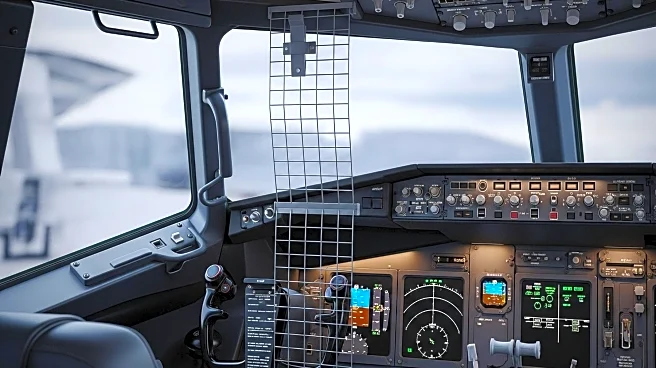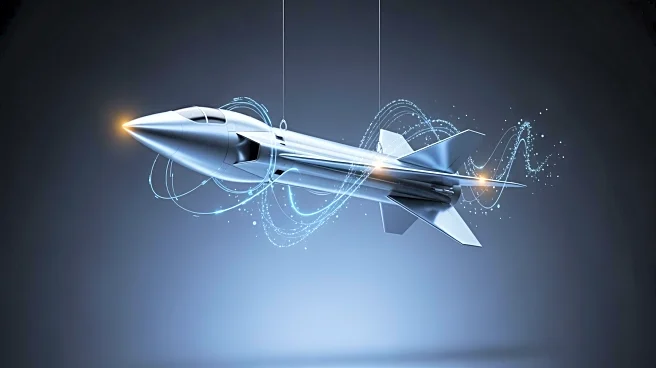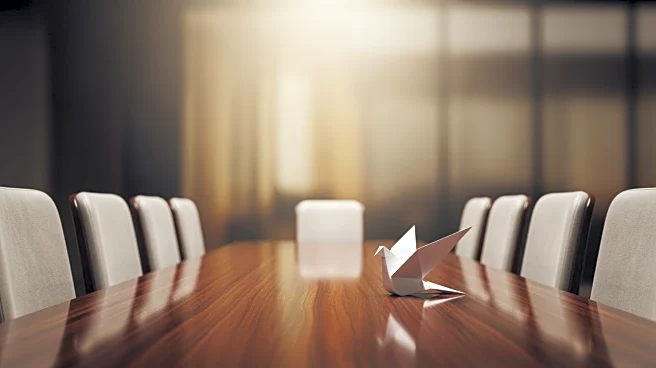What's Happening?
Southwest Airlines has announced the installation of secondary cockpit barriers on its new Boeing 737 aircraft, enhancing security measures when the cockpit door is open. This initiative follows a long-standing recommendation from the Air Line Pilots Association, the largest pilots union in the U.S., which has advocated for these barriers since the September 11 attacks. The barriers are designed to be deployed temporarily when a pilot exits the cockpit, providing an additional layer of protection against unauthorized access. Southwest plans to have 26 aircraft equipped with these barriers by the end of the year. Other major airlines, including American Airlines, Delta Air Lines, and United Airlines, have not yet disclosed their plans for implementing similar security measures.
Why It's Important?
The introduction of secondary cockpit barriers by Southwest Airlines represents a significant step in aviation security, addressing concerns that have persisted since the September 11 attacks. These barriers are intended to prevent unauthorized access to the cockpit, thereby enhancing passenger and crew safety. The move could set a precedent for other airlines to follow, potentially leading to widespread adoption of similar security measures across the industry. This development is particularly relevant as airlines continue to seek ways to improve safety protocols and reassure passengers of their commitment to security.
What's Next?
Southwest Airlines will continue to roll out the secondary cockpit barriers across its fleet of new Boeing 737s, with 26 aircraft expected to be equipped by the end of the year. The Federal Aviation Administration (FAA) has allowed airlines to implement these barriers on new aircraft, but there is currently no requirement for retrofitting existing planes. As Southwest progresses with its implementation, other airlines may face increased pressure from pilot unions and safety advocates to adopt similar measures. The industry will be watching closely to see if American Airlines, Delta Air Lines, and United Airlines announce their plans for cockpit security enhancements.








